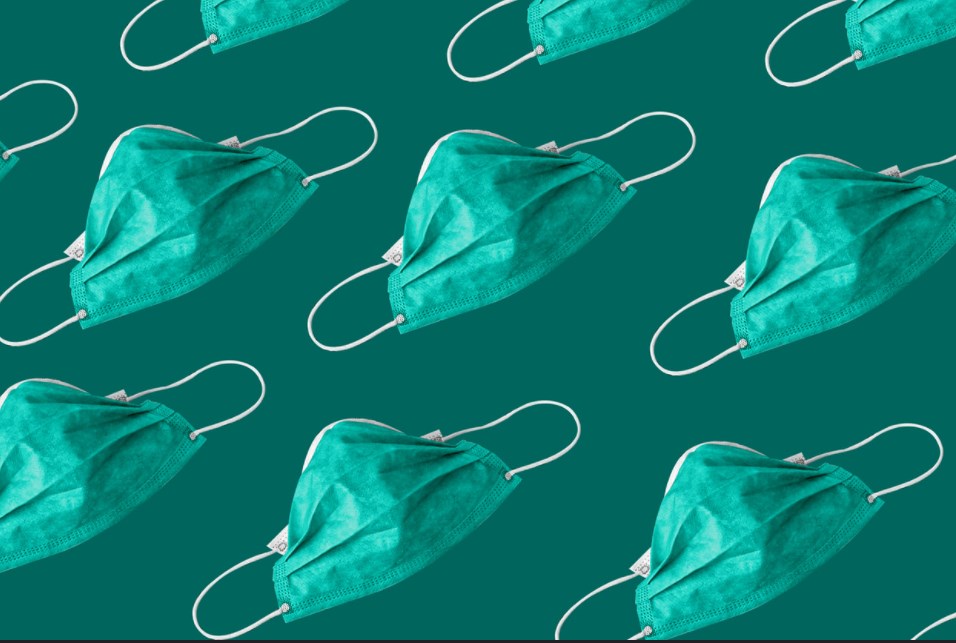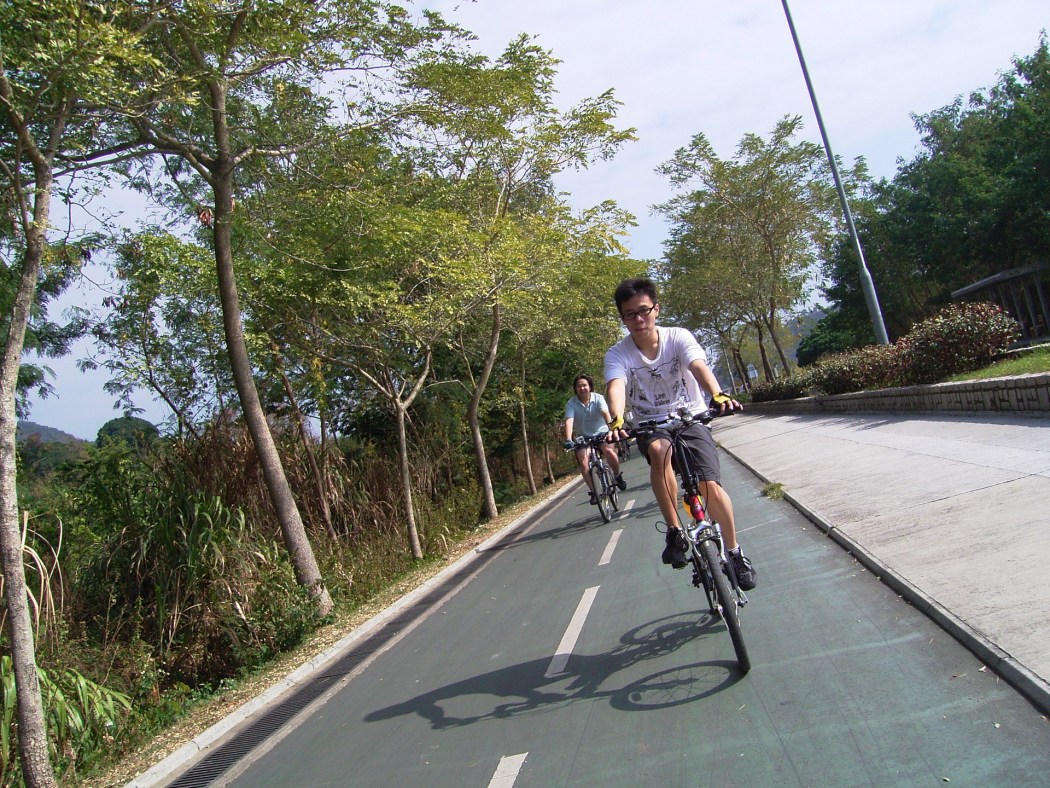By David Owens
Health is a positive construct which exists along a spectrum. Almost all of us have the capacity to be healthier. Too often, narratives around health focus on metrics of disease. Conversations around cancer treatment, the incidence of heart disease or the numbers of hospitals and intensive care beds are reflective of a disease-based health model.

Health is not the opposite of disease. The World Health Organization (WHO) definition of health is a state of physical, psychological and social well-being, not the absence of disease. I have always been a fan of this holistic, positive definition. If the children of Hong Kong are to grow into the healthiest adults that they can be, we will need a top-down paradigm shift in the concept of population health.
It is estimated that the average person loses the equivalent of two hours of walking per day, purely from labour-saving devices. By the time I was born in 1960 almost all human technological advances had been driven by a search for increased efficiency and reduction in the need for physical labour. I was born into one of the first generations in human civilisation in which threats to health were driven by too many calories rather than too few. Even then, some of the pioneers of population health recognised the threats posed by inactivity.
In a brilliant epidemiological study published in 1958, researchers showed that London bus drivers had a significantly higher incidence of heart disease than bus conductors. Essentially the drivers sat down all day whereas the conductors walked up and down the stairs in the bus collecting fares.
Recent research has confirmed these early findings. Inactivity is very bad for disease risk. To give some idea of the size of this effect, when looking at all-cause mortality, studies suggest that in an age-matched cohort the least fit individuals are five times more likely to die in the following 10 years than those with elite levels of fitness.
To give some context, smoking increases baseline risk by around 40 per cent. It is very well recognised that objective measures of physical fitness, such as VO2 max or grip strength, are much better predictors of future health than traditional metrics on blood testing.
I have spent my whole life involved in sports and have long had an interest in exercise medicine. In the ongoing debate around the relative contributions of exercise and diet to health, I always argued for exercise as the predominant contributor. Recently I have been forced to reevaluate and acknowledge the increasing role of diet, especially refined carbohydrates, in poor health.

Societies that age well tend towards diets that maintain energy balance, contain predominantly fresh foods with minimal junk food or processed food, are limited in simple carbohydrates and generally include a wide range of vegetables, legumes, nuts, seeds, and fruits in addition to meat and fish. It is not rocket science that millions of years of evolution have led to an adaption towards a predominantly hunter-gatherer diet with periods of intermittent fasting.
The last century has seen a rapid reduction in child and perinatal mortality mainly driven by economic development and engineering solutions which allow the provision of clean water and sanitation. Modern medicine has made a huge difference to the lives of individuals but in population terms the greatest contribution of medicine to increasing life expectancy has been mostly via low-cost and low-tech interventions, especially immunisation and birth control.
Antibiotics have significantly reduced the threat of infective illness and as a result the greatest long-term health risks to Hongkongers now come from the diseases of ageing. Heart disease, strokes, diabetes, neuro-degenerative diseases and even cancer are predominantly diseases of biological ageing.
Genetics plays an important role but the single greatest factors influencing biological ageing, and hence disease risk, are levels of physical activity, diet and psychological well-being. If we really want to positively influence long-term population health we must stop focusing exclusively downstream on disease outcomes and focus upstream on preventative solutions.
We will always need disease-based specialties within our health system but we need a paradigm shift away from a reactive disease focus towards a proactive health-based approach. Inactivity, malnutrition (which literally means bad diet) and poor mental health all accelerate biological ageing and therefore increase disease risk.
It is well recognised that as countries develop, activity levels fall. The World Health Organization published a global action plan on physical activity 2018-2030. Research suggests that inactivity currently accounts for up to three per cent of national health care costs. This represents a fraction of the future costs of accelerated biological ageing.
As populations age the costs of managing the diseases above in addition to supportive and residential care for the elderly will dominate national health budgets. The WHO data showed that 25 per cent of adults and 75 per cent of adolescents (age 11-17) have activity levels inadequate for health.

Hong Kong figures are actually worse. Data from a team of local academics suggested that in 2022 only 10 per cent of Hong Kong primary students (P1-6) met the recommended targets for physical activity. The Active Healthy Kids Report Card for 2022 gave Hong Kong a D- for both overall physical activity and obesity.
The 2022 activity data was undoubtedly negatively impacted by the public health measures associated with the Covid pandemic. Hong Kong children have been significantly impacted by restrictive Covid policies, both directly and to a much greater degree indirectly via the negative impact on the economy, social inequality, mental health and reduced physical activity.
The Hong Kong Covid response was characterised by an excessive focus on the disease with little consideration for the negative impact of policies on population health. Messaging was predominantly negative and appeared to be focused more on population control than empowerment through education. The illusion that risk could be eliminated, when it can only ever be mitigated, led to excessive confidence in restrictive policies.
The image of Hong Kong children in 2024 sitting masked in front of a computer during break time, rather than running and laughing in a playground, is an example of the failings of public health policy. To be clear, I am not advocating against masks, they were useful during the epidemic phase of Covid. The fact that they are so widely used by children in Hong Kong today is a measure of how deeply rooted the misunderstandings are about their role and value. It is a great shame that Hong Kong has not undertaken a thorough review of pandemic policies.
When considering physical activity, it is important to emphasise that exercise is about much more than sport: indeed, focusing on sport can put some people off. The WHO global action plan proposes a system-based approach with a focus on active societies, active environments, active people and active systems. By definition, any plan to improve population health will need to be driven by government.
Hong Kong has been very good at encouraging exercise participation, especially in adults. One of the great positives post-Covid has been the increasing numbers of active people in the country parks. Maintaining increased activity at a population level must involve creative solutions, increasing pathways for walking and cycling and building in options for energy expenditure within buildings.

Wearable technology also offers an evidence-based adjunct to increasing activity. Influencing diet can be achieved through education, but also via other creative solutions, including taxation. It is a step forward that in Hong Kong we are finally also talking about the importance of mental health.
Exercise and physical activity, especially outdoors in nature, have been shown to be very effective in both the management and prevention of anxiety and depression. Cognitive framing is also very important and in this regard bringing up children in a culture of fear is very damaging to long-term health and well-being.
Ultimately, health is a positive construct which exists along a spectrum. Public health policies in Hong Kong have historically been disease-focused rather than health-focused. This is at least in part a result of power dynamics within the local medical profession, with hospital- based disease experts tending to dominate decisions around healthcare.
The vast majority of interactions in any health system take place in the community, not in hospitals. The shift away from a disease-focused health system towards a more positive proactive health model will require a shift in the political narrative, both at the level of government but also within the medical establishment.
This article is based on a recent lecture given to the Hong Kong Sports and Emergency Medicine Conference entitled ‘Lessons from Sport for Public Policy Impact’
David Owens is an Honorary Clinical Assistant Professor in Family Medicine (HKU), Chief Medical Officer of Hong Kong China Rugby and co-founder of OT&P Healthcare. He has worked in Hong Kong since 1988.
Type of Story: Opinion
Advocates for ideas and draws conclusions based on the interpretation of facts and data.
Support HKFP | Policies & Ethics | Error/typo? | Contact Us | Newsletter | Transparency & Annual Report | Apps
| HKFP is an impartial platform & does not necessarily share the views of opinion writers or advertisers. HKFP presents a diversity of views & regularly invites figures across the political spectrum to write for us. Press freedom is guaranteed under the Basic Law, security law, Bill of Rights and Chinese constitution. Opinion pieces aim to point out errors or defects in the government, law or policies, or aim to suggest ideas or alterations via legal means without an intention of hatred, discontent or hostility against the authorities or other communities. |
Help safeguard press freedom & keep HKFP free for all readers by supporting our team

More HKFP OPINION:
HKFP has an impartial stance, transparent funding, and balanced coverage guided by an Ethics Code and Corrections Policy.
Support press freedom & help us surpass 1,000 monthly Patrons: 100% independent, governed by an ethics code & not-for-profit.








